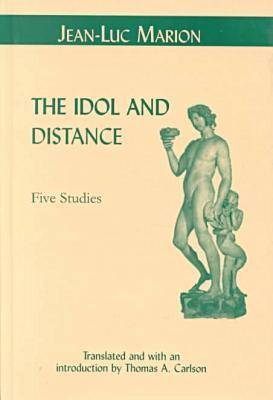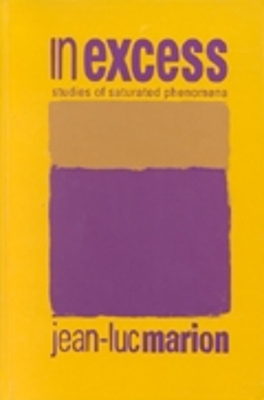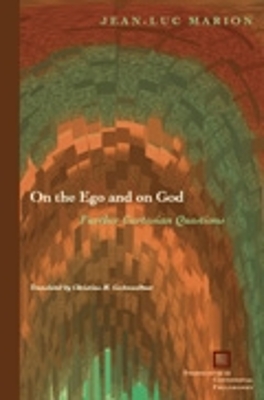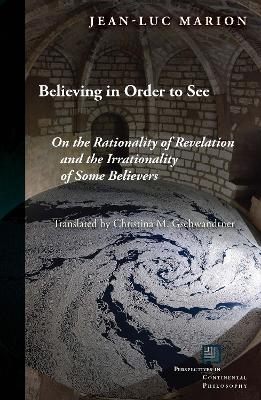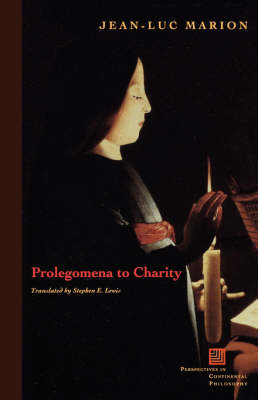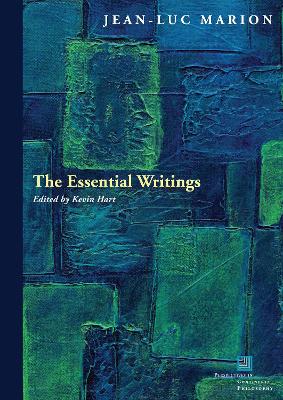Perspectives in Continental Philosophy
7 total works
In The Visible and the Revealed, Jean-Luc Marion brings together his most significant papers dealing with the relationship between philosophy and theology. Covering the ground from some of his earliest writings on this topic to very recent reflections, they are particularly useful for understanding the progression of Marion's thought on such topics as the saturated phenomenon and the possibility of something like "Christian Philosophy." The book contains his seminal pieces on the saturated phenomenon and on the gift, although the essays also explore more recent developments of his thought on these topics.
Several chapters explicitly explore the boundary line between philosophy and theology or their mutual enrichment and influence. In one of the final pieces, "The Banality of Saturation," Marion considers some of the most recent objections brought against his notion of the saturated phenomenon and responds to them in detail, suggesting that saturated phenomena are neither as rare nor as inflexible as often assumed. The work contains two chapters not previously available in English and brings together several other pieces previously translated but now difficult to find. For readers interested in the relation between the two disciplines,
this is indispensable reading.
In this most recent of his seminal studies on Descartes, Jean-Luc Marion brings together essays on the topics of the ego and of God, most of them previously unavailable in English. More than any other of Marion’s works, the book illustrates the profound connection between his phenomenological concerns and his writings on Descartes. Liberating God and the self from the constrictions of metaphysics are fundamental tenets of Marion’s theological and phenomenological work. This book highlights the same topics in the philosophy of Descartes.
In Part I (On the Ego), Marion explores the alterity of the Cartesian ego, arguing that it is not as solitary as has often been assumed, and shows how Descartes’ writings themselves are framed by dialogue. He explicates the status of the “rule of truth” in the Meditations, on the one hand highlighting how Descartes’ argument is not circular, on the other hand showing how Pascal responds to and alters Descartes. He also elucidates the ambivalent status of the concept of substance in Descartes by returning to its roots in the philosophy of Suarez.
In Part II (On God), Marion returns to the important Cartesian thesis of the creation of the eternal truths, setting it in the context of the claims of earlier thinkers and showing its demise in philosophies following Descartes. The study closes with a careful delineation of the concept of causa sui and a detailed survey of the idea of God in seventeenth-century thought.
Faith and reason, especially in Roman Catholic thought, are less contradictory today than ever. But does the supposed opposition even make sense to begin with? One can lose faith, but surely not because one gains in reason. Some, in fact, lose faith when reason is not able to make sense of the experience of our lives. Yet, we actually lose reason by losing faith.
Examining such topics as the role of the intellectual in the church, the rationality of faith, the infinite worth and incomprehensibility of the human, the phenomenality of the sacraments, and the phenomenological nature of miracles and of revelation more broadly, this book spans the range of Marion's thought on Christianity. Throughout he stresses that faith has its own rationality, structured according to the logic of the gift that calls forth a response of love and devotion through kenotic abandon.

